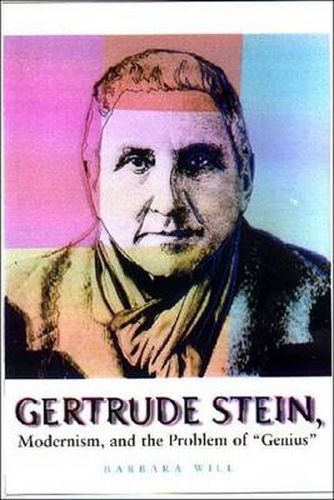Readings Newsletter
Become a Readings Member to make your shopping experience even easier.
Sign in or sign up for free!
You’re not far away from qualifying for FREE standard shipping within Australia
You’ve qualified for FREE standard shipping within Australia
The cart is loading…






Gertrude Stein frequently called herself a genius, but what did this term really mean for her? Stein’s claims to genius are legendary, appearing frequently throughout her texts and public lectures. Were they the signs of excessive egotism, of desperate self-advertisement, or of something else entirely? This book examines the centrality and the specificity of the idea of genius to Stein’s work and to the aesthetic ideals and contradictory intellectual affiliations of high modernism in general. Through a chronological reading, it maps Stein’s move from an early investment in an essential and essentialising notion of genius to the later use of the term to describe an anti-essentialist, democratic textual process. It considers how this revisionary idea of genius came to correspond with Stein’s identificaiton of herself as Jewish, queer and American. And it ends with Stein’s seemingly paradoxical decision to call a text about being a genius in America, Everybody’s Autobiography . Drawing upon a wide range of literary theory, cultural criticism and historical evidence, and offering new readings of previously unexamined texts by Stein, Barbara Will challenges received understandings of Stein’s claims to genius and of modernist literary hermeticism by reconceptualising the textual practice of this exemplary modernist writer.
$9.00 standard shipping within Australia
FREE standard shipping within Australia for orders over $100.00
Express & International shipping calculated at checkout
Gertrude Stein frequently called herself a genius, but what did this term really mean for her? Stein’s claims to genius are legendary, appearing frequently throughout her texts and public lectures. Were they the signs of excessive egotism, of desperate self-advertisement, or of something else entirely? This book examines the centrality and the specificity of the idea of genius to Stein’s work and to the aesthetic ideals and contradictory intellectual affiliations of high modernism in general. Through a chronological reading, it maps Stein’s move from an early investment in an essential and essentialising notion of genius to the later use of the term to describe an anti-essentialist, democratic textual process. It considers how this revisionary idea of genius came to correspond with Stein’s identificaiton of herself as Jewish, queer and American. And it ends with Stein’s seemingly paradoxical decision to call a text about being a genius in America, Everybody’s Autobiography . Drawing upon a wide range of literary theory, cultural criticism and historical evidence, and offering new readings of previously unexamined texts by Stein, Barbara Will challenges received understandings of Stein’s claims to genius and of modernist literary hermeticism by reconceptualising the textual practice of this exemplary modernist writer.